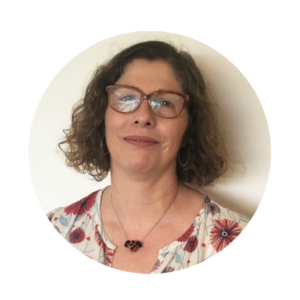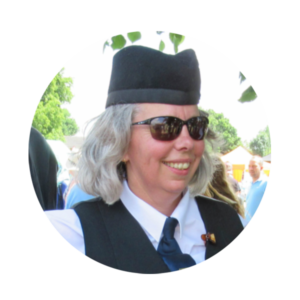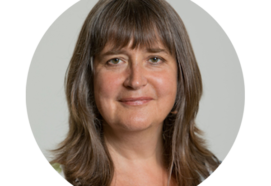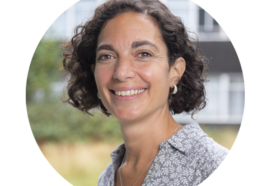The ACAMH LASER SIG (Learning Disability Special Interest Group) talked to Julie Blackaby and Noeleen Morritt give an insight into the role of learning disability nurse. This article forms part of the LASER SIG Newsletter September 2019.

Julie manages a Learning Disability Children’s Emotional Wellbeing and Mental Health (EWMHS) Community Team in Essex. Her team works with children and young people aged between 4-18 years with a severe to profound learning disability and who have an additional emotional and/or mental health issue.

Noeleen Morritt works for the London Borough of Croydon in CAMHS. The present LD nurse role in CAMHS is full time but is not fully ringfenced for learning disabilities.
What does a learning disability nurse do?
Julie: Learning Disability Nurses will have completed training to support and enable people with a learning disability, in a wide variety of settings. We are lifelong learners, and I feel this means that it is hard to define what a Learning Disability (LD) Nurse does as we have such individual career pathways. Common for all is the training centred on understanding the impact of a learning disability on the individual and using that knowledge to make reasonable adjustments to support clients to reach their full potential. I worked with adults with challenging behaviours and then later became a Community Nurse. In 2001, I moved to CAMHS working with young people with LD and ADHD, young people without LD and with mental health issues. In 2006 I joined the team I now manage as a clinical nurse specialist. I was involved in developing and setting up the service.
Noeleen: When asked to capture the typical day for me as a learning disability (LD) nurse, I wanted to creep into a dark corner and hide. Such a feeling is in itself interesting, and resulted in my asking, ‘just what is the function of your behavior?’ Clearly avoidance.
Avoidance of the question asked long before my professional career began, ‘just what do LD nurses do?’ Previous responses to my explanation of the role, were swiftly followed by the comment, ‘ah, so you are not proper nurses then’. Despite the passing of years, I still occasionally hear this and am disheartened by it. A recent recruitment drive for LD nurses depicted us wearing uniforms and working in the acute sector. I suspect the vast majority working for the NHS are offering an outreach service in the community.
LD nursing in the NHS has become incredibly diverse over recent years. We can be found in places traditionally unexpected, practicing in fields of medicine which would not have been considered possible at the start of my career.
As I near the end of my 34th year of LD nursing I have found myself reflecting on the diversity of my nursing experiences. The profession has struggled with identity over the decades. On more than one occasion I have been told ‘the branch of nursing is dead’. However, as I approach the end of my career, I think it is probably the liveliest and most exciting it has been since the advent of the NHS. I am not sure if this perception is isolated to my area of work or if it’s something other LD nurses are experiencing. I hope to be more informed on this following a pending event celebrating 100 years of LD nursing.
Where do you work?
Noeleen: I work in the London Borough of Croydon. I moved from the adult LD services to a new post in Children’s Services. I was initially taken aback by the completely different culture in service delivery. It was like learning a whole new language, moving away from the traditional focus of work in adult LD community nursing to defining a LD role in the trust for children, creating a service and seeking opportunities for development.
Initially I was placed in the safeguarding team for children. The team had followed the normal structure of named nurses who were from child and health visiting background. Joining as a LD nurse brought a whole new dynamic to the service. The team readily made use of my knowledge on disability, mental health and laws about both, as well as my knowledge about behaviour, to contribute to consultations, investigations and teaching. It quickly became apparent that the skills of the LD nurse were transferable to areas previously deemed out of bounds. Importantly they were recognised as offering a unique perspective on safeguarding. I found myself supporting risk assessments in maternity and participating in child death reviews, as well as, what I suppose could be referred to as the day-to-day work of an LD nurse. The safeguarding referrals we received for young people with LD often cited vulnerability surrounding sexual exploitation. While in the team and under the supervision of the FPA, I developed a teaching pack including sex education, consent etc.
In partnership with Croydon CAMHS we developed a 10 week behaviour programme for parents whose children have a learning disability. This has run for several years now, the outcomes and retention rates are positive. Many participants comment on the need for this at a younger age. Coupled with this and having good links with the community paediatricians, I was rapidly becoming overwhelmed with referrals for children under the age of 5 requesting support with behavior. So, I adapted the behaviour programme for younger children with LD. This is now in its third year of running and I have recently secured funding for its on-going delivery.
Last year I accepted a job in Croydon CAMHS. The team had previously had a psychologist with dedicated LD time but had not had an LD nurse in the service before. As with my previous move, the LD nurse role has brought in a different dynamic and philosophy of care. The team is expanding, incorporating new initiatives such as CWPs and IAPT trainees. Presently the LD service within CAMHS consists of myself, 3 sessions of a psychiatrist along with an IAPT trainee who has 1.5 days for LD / ASD casework. We are commissioned to provide tier 3 work. Given the limited provision the service is preserved for the children and young people with severe to moderate LD. However, recent negotiations with Croydon Health Services has resulted in them funding an additional 2 posts within CAMHS to develop a tier 2 provision.
The present LD nurse role in CAMHS is full time but is not fully ringfenced for learning disabilities. I complete ASD assessments, which include administering ADOS on children without learning disabilities. I had to adjust to this form of assessment, not only because it was a new tool to me but also children spoke in phrases and sentences when most of the children I have worked with throughout my career have had very limited communication.
What is a typical day for you?
Julie: As a clinical nurse specialist and manager there is no typical day. There are tasks and interventions that are a daily part of my job. In my role as a clinical nurse specialist I complete home visits, providing psycho-education and parent support. We assess and support a child’s mental health issues. To aid understanding, I might complete sensory profile and sleep assessments. We work with children’s systems to improve understanding, developing plans to support children. I lead our six-session series of workshops for parents and provide training to other professionals on emotional wellbeing.
I provided consultation to local “Children with Disability Teams”, special schools, EWMHS Services and other professionals. I can be the key clinician attending psychiatry assessments and clinics liaising with psychiatrists about the children on our caseload. My role now also includes leading on developing the Team and our new members of staff as well as providing clinical supervision and guidance to my Team alongside the Team’s Lead Clinician.
Noeleen: I find it hard to capture a typical day for me as an LD nurse. One of the many joys about my job is the fact that no two days are the same. I expect the unexpected and enjoy it beyond any other job I can imagine. It is creative, flexible, fun and ever developing.
What is the challenge?
Julie: The challenges as with all work in the NHS and in Social Care is the balance of an increasing workload with providing a service to be proud of and that meets the needs of our client group. One difficulty is that our children and their families live in multi-layered systems of professionals and organisations, all providing a variety of packages. Our children’s emotional wellbeing is so reliant on their parents/carers having appropriate support, and children being able to access the right resources, that it can often be very hard to effect changes we feel are needed. As a health team we can influence a number of these issues but are not always in a place to effect change. It can be very frustrating when it means we cannot improve what we think is impacting on our child and family’s emotional wellbeing, because they are so significantly interlinked.
Noeleen: Beyond those we all face working in the NHS, I think the challenge which I feel I have never managed well is ‘just what do LD nurses do’. I take some comfort in knowing that several reports have been produced over the years about our role and none have really impacted on other professionals’ understanding. It appears to be direct involvement with us which informs opinions.
What makes the role worthwhile?
Julie: The times we do make a difference for a family, the systems around them and their child. This may be:
- expanding a family’s understanding so they feel more able to support their child. We may not have actively changed behaviour, but the additional knowledge can be a powerful tool for change.
- interventions that have made a difference
- when families share that our support and understanding of their child and their issues, does make a difference to their lives and to the life of their child.
Noeleen: There are some significant things such as being given money to develop a service before I retire from the NHS, to the tiniest things that make it worthwhile for me. The parent for example who says our intervention is ‘family life changing’, the little boy who recently told me, ‘it can’t rain cats and dogs, it can only rain water’, the picture a 5 year old drew for me of his family and pointed me out. I am known in my office for telling stories from my 34 years as a LD nurse, sharing the unique world of learning disability and making people laugh. I have had the best career.


